Our Beginning
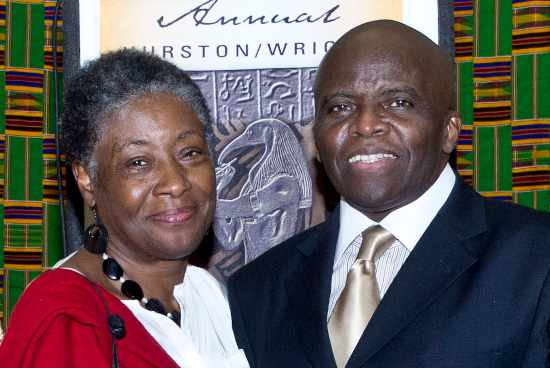
The Zora Neale Hurston/Richard Wright Foundation started with a fortuitous interview on a radio program. Author Marita Golden was discussing her debut memoir, Migrations of the Heart, when businessman and cultural activist Clyde McElvene heard her and was so impressed that he sought her out. Although they had different backgrounds and work experiences, they shared a great love of African American books and believed more should be done to promote and honor African American writers. From that conversation, a literary organization was born in 1990.
Our Name
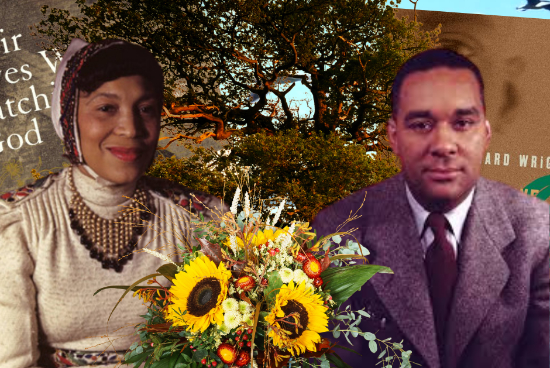
One of the first significant decisions concerned the name of the organization. Marita felt it was important to name the organization after a Black male writer and a Black female writer, hoping to send a strong signal. At the time, Black writers were waging a war of words, disagreeing about who they should be writing for, who they should be writing about, and, mostly, how Black men and Black women were portrayed in their writings. To lessen the tension, Marita decided to name the foundation for two iconic literary figures, Zora Neale Hurston and Richard Wright. They had clashed, so it was only appropriate to join their names for a foundation that would bring people together. Watch this video where Marita shares more about the naming of the organization.
Our Early Supporters
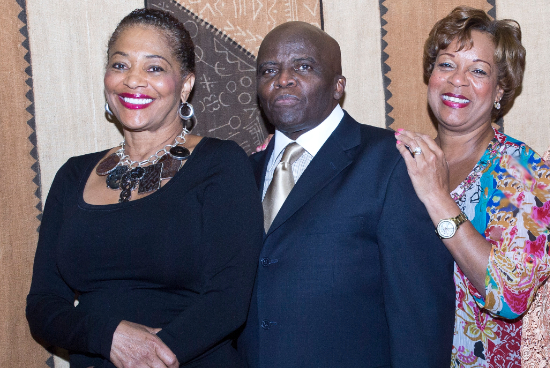
Initial seed money of $750 came from Marita’s own funds. George Mason University in Northern Virginia, where Marita was a professor, helped to establish Hurston/Wright as a nonprofit organization. On August 22, 1990, the Zora Neale Hurston/Richard Wright Foundation was incorporated in Washington, D.C., Marita’s and Clyde’s hometown.
Early supporters included Henry Louis Gates, who persuaded HarperCollins Publishers to provide additional funds. Terry McMillan, Gloria Naylor, John Edgar Wideman, Nikki Giovanni, Toni Morrison, Maya Angelou, and John Grisham also provided substantial economic support.
Zora Neale Hurston’s niece, Lucy Anne Hurston, continues to be a loyal supporter of the organization, helping with fundraising campaigns and serving as the chair of the organization’s advisory board. Now retired from research and teaching, in 2023, she will lend her talents to the organization as a summer workshop instructor.
Our Awards
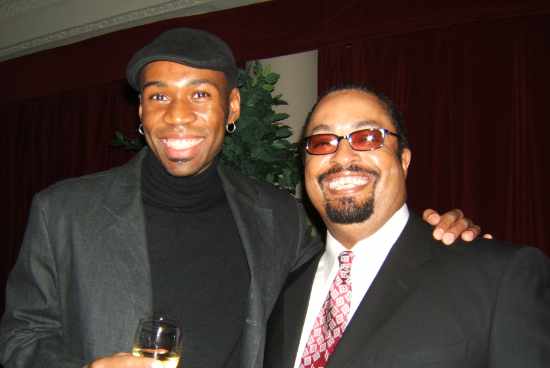
In 1991, Hurston/Wright established an award for college writers as its first program and selected Georgetown University student Paul Derek Moore as the recipient of a $750 prize. The award continues to be the only one of its kind that recognizes Black college writers. In 1996, the foundation launched a summer writing workshop at Virginia Commonwealth University in Richmond, Virginia, where Marita had moved to teach. The university helped the organization grow, providing space, staff and funds. Workshop students came from across the country to learn from writers of color, and the foundation was becoming well-known through news coverage.
While Marita managed the creative side of the organization, Clyde focused on the business side. Although Hurston/Wright was receiving grants and donations, the nonprofit still had to struggle to raise funds. In 2001, one unexpected source of funding was author and board member E. Lynn Harris. He gave the organization $5,000 to start the Legacy Awards to honor the best in Black literature in the United States and abroad. The donation helped attract Borders Group, a book and music retailer, as a major sponsor.
Our Organization
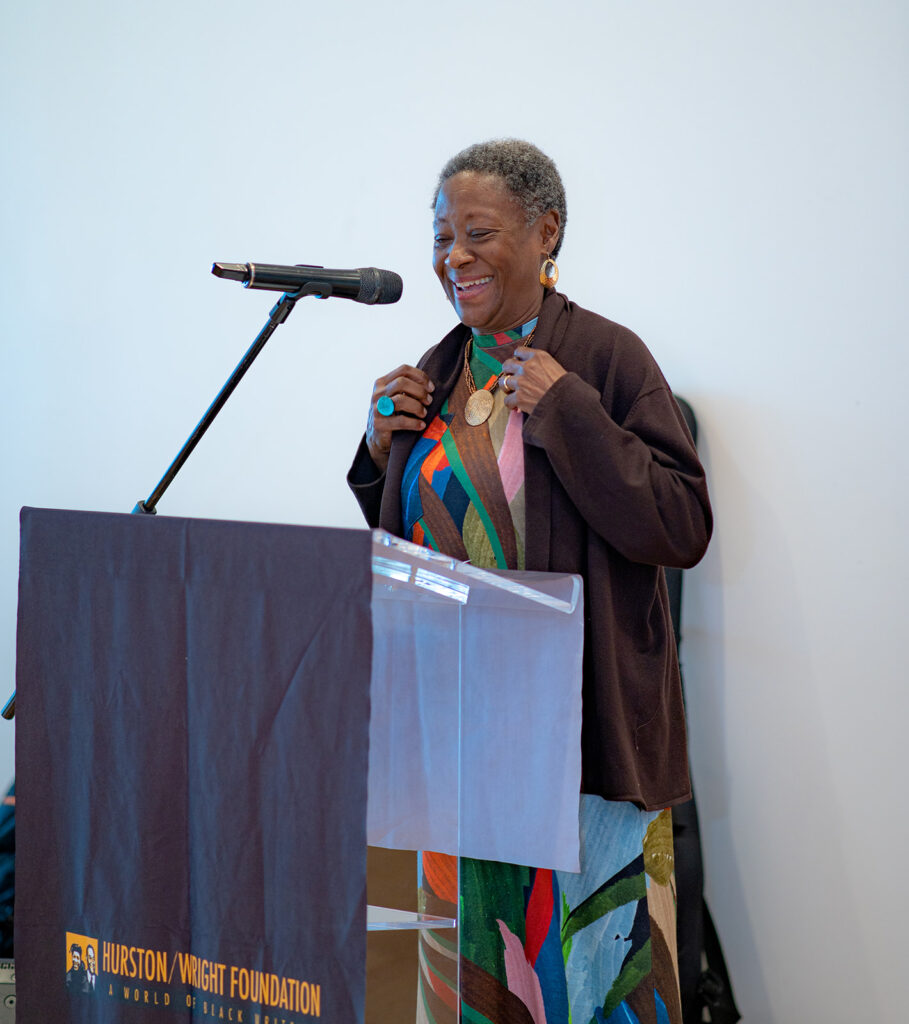
Clyde credits Borders for attracting other publishers. “We met with Borders Books and signed an agreement for $25,000 for prize money for the Legacy Awards. That put us on the map with publishers,” he said, citing Simon & Schuster, Random House, and Doubleday. Over the years, the foundation gave out more than a quarter of a million dollars in prize money to Black writers.
Funding shifted as the industry changed. Around 2008, Borders Books started having financial troubles and eventually ceased operations, ending the financial awards given to Legacy winners. Publishing houses also were consolidating, limiting those sources. Hurston/Wright adjusted, relying on individual donations and program revenue.
As the organization grew into the 2010s, both Clyde and Marita began to focus on leadership roles. “I wanted the organization to evolve so that a new generation of leaders could take over from me and Clyde,” Marita said. “It was important for new people to not only be on the board of directors but empowered to challenge me and Clyde. So that period helped to lay the groundwork for the organization as it is today.”
Our Impact
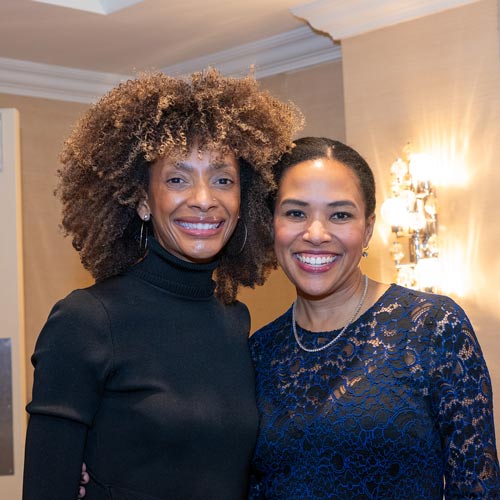
Clyde stepped down as chief executive officer in 2013 and Marita stepped down as executive director at the end of 2015. In the 30 years since they started this work, the foundation has built a network of supporters and produced significant impact:
- More than 1,000 Black writers have taken workshops and classes, which are now held in partnership with Howard University.
- Over 90 students have received college awards and 31 of them have published books.
- More than 400 books have been selected as Legacy Award honorees
- More than 2,000 readers have attended free public programs featuring authors.
With Zora Neale Hurston and Richard Wright as inspiration, new directors and board members have embraced Marita and Clyde’s mission to “discover, mentor, and honor Black writers.” The foundation continues to tell our stories, speak to critical issues, preserve our heritage, and celebrate our culture.

